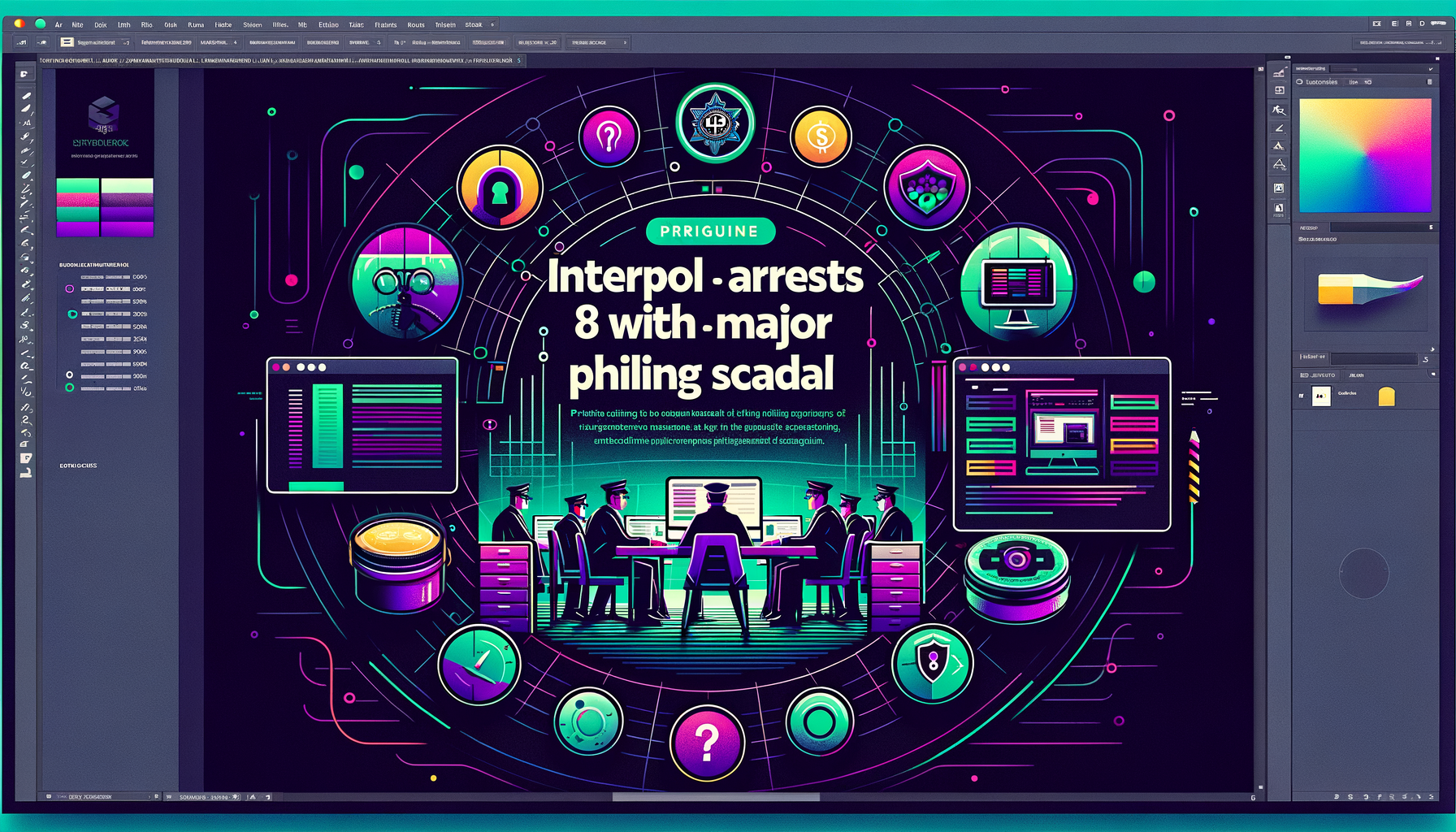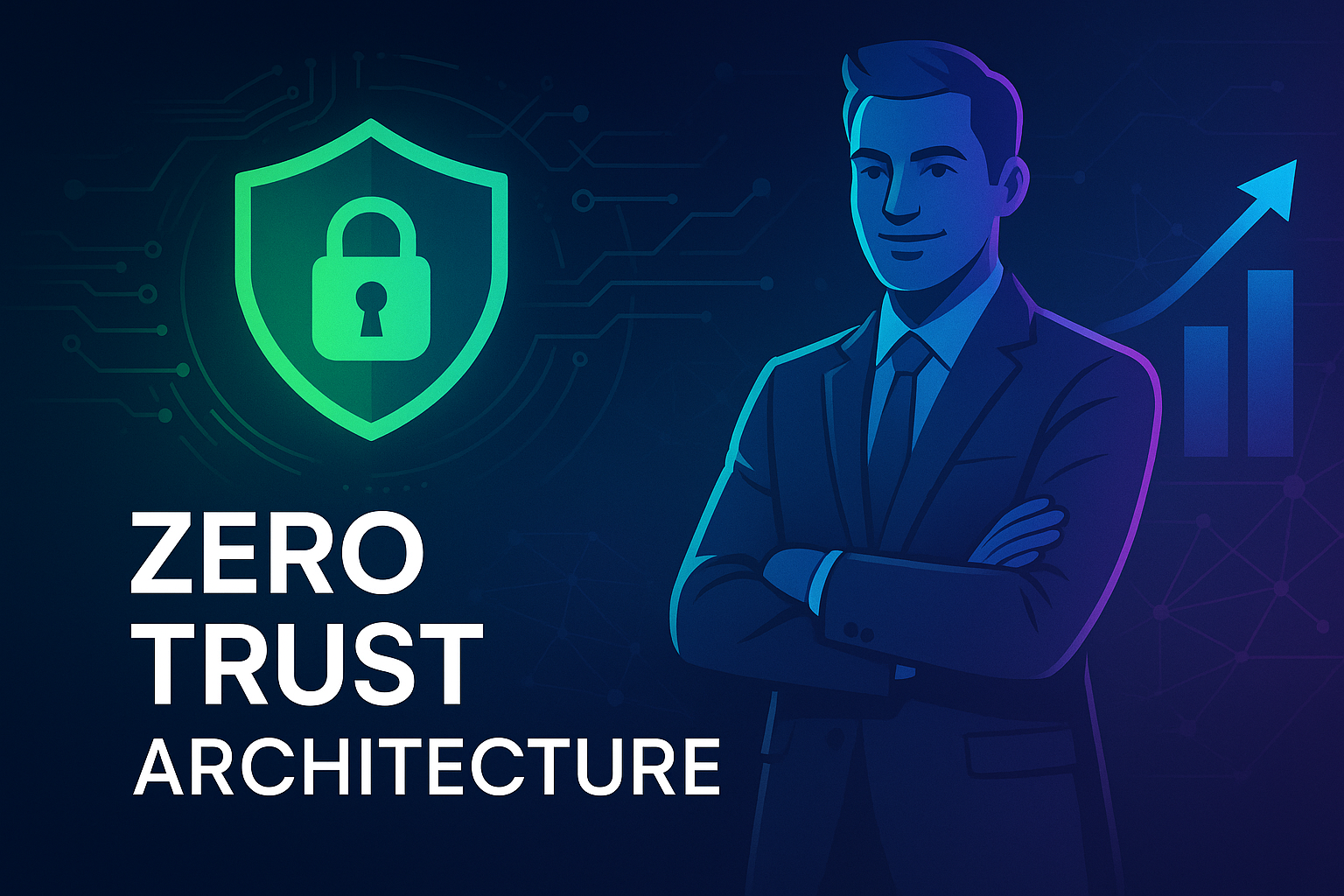Interpol’s Recent Phishing Bust: What It Means for Cybersecurity
In a groundbreaking operation, Interpol recently arrested eight individuals involved in a significant phishing ring, shedding light on the ever-evolving landscape of cybercrime. As cyber threats continue to proliferate, this arrest marks a notable victory in the global fight against cybercrime, but it also underscores the persistent vulnerabilities businesses and individuals face worldwide. This article delves into the details of the operation, the implications for cybersecurity, and how services like those provided by Hodeitek can safeguard against such threats.
The Details of the Interpol Operation
According to The Hacker News, Interpol’s operation spanned across multiple countries, targeting a phishing syndicate responsible for significant financial losses. The syndicate, which operated across Europe and Asia, used sophisticated phishing techniques to steal sensitive information from unsuspecting victims. The operation highlights the capability and reach of cybercriminal organizations, making it clear that international cooperation is crucial in combating these threats.
A Closer Look at Phishing
Phishing remains one of the most prevalent forms of cybercrime. Cybercriminals often masquerade as trustworthy entities to trick individuals and businesses into providing sensitive information. In 2023 alone, phishing attacks were responsible for losses exceeding €2 billion globally. While technological advancements have improved detection and prevention methods, phishing tactics continue to evolve, making it challenging to safeguard digital assets.
How Phishing Works
Phishing typically involves the use of emails, social media, or malicious websites. These attacks often employ a sense of urgency or fear to prompt quick action from the victim. After obtaining sensitive data, criminals can access financial accounts, corporate systems, and other valuable assets, causing irreparable harm to victims.
The Role of Cybersecurity Measures
In light of these threats, robust cybersecurity measures have become indispensable. Businesses and individuals cannot afford to be complacent. The integration of advanced security solutions is essential to mitigate the risk of phishing and other forms of cybercrime.
Endpoint Detection and Response (EDR), Extended Detection and Response (XDR), and Managed Detection and Response (MDR)
One of the critical services offered by Hodeitek is EDR, XDR, and MDR. These services are pivotal in ensuring rapid detection and response to cyber threats, including phishing attacks. EDR focuses on endpoint protection, while XDR and MDR offer more comprehensive threat monitoring and response capabilities across networks and cloud environments.
Next Generation Firewall (NGFW)
The implementation of a Next Generation Firewall is crucial. NGFWs are designed to detect and block sophisticated attacks through deep packet inspection and advanced threat intelligence. This technology provides a crucial layer of defense, identifying and neutralizing phishing attempts before they reach end-users.
Vulnerability Management as a Service (VMaaS)
Vulnerability Management as a Service (VMaaS) ensures that potential vulnerabilities within systems are identified and addressed proactively. Regular scanning and patch management can prevent cybercriminals from exploiting known vulnerabilities to execute phishing attacks.
The Importance of Security Operations Center (SOC) as a Service
A dedicated Security Operations Center (SOC) as a Service provides continuous monitoring and analysis of cybersecurity threats. By leveraging advanced analytics and threat intelligence, SOCaaS ensures that potential phishing and other threats are identified and mitigated swiftly.
Industrial SOC as a Service (SOCaaS) 24×7
For industries reliant on critical infrastructure, Industrial SOC as a Service offers tailored security monitoring to address the unique challenges faced by industrial networks, further safeguarding against targeted cyber threats.
The Need for Cyber Threat Intelligence (CTI)
Cyber Threat Intelligence (CTI) is vital in the current threat landscape. By analyzing threat trends and patterns, CTI equips organizations with actionable intelligence to anticipate and neutralize phishing attempts before they reach critical systems.
Data Loss Prevention (DLP)
Data protection is paramount, and Data Loss Prevention (DLP) solutions play a crucial role in safeguarding sensitive information. DLP technologies identify, monitor, and protect data from unauthorized access, thereby reducing the risk of data breaches resulting from phishing attacks.
Web Application Firewall (WAF)
Another essential defense mechanism is the Web Application Firewall (WAF). A WAF helps protect web applications by filtering and monitoring HTTP traffic between a web application and the Internet. With WAFs, businesses can protect against exploited vulnerabilities and malicious traffic, often associated with phishing schemes.
Conclusion
The recent Interpol operation exemplifies the persistent and evolving nature of phishing threats worldwide. As businesses continue to digitize their operations, it’s crucial to bolster cybersecurity defenses with advanced solutions. Services such as EDR, XDR, MDR, NGFW, and others offered by Hodeitek equip organizations with the necessary tools to defend against cyber threats effectively. By staying informed and proactive, businesses can protect their digital assets and maintain operational integrity.
For a comprehensive cybersecurity strategy tailored to your needs, contact Hodeitek today. Implementing the right security measures could be the difference between vulnerability and resilience in cyberspace.






